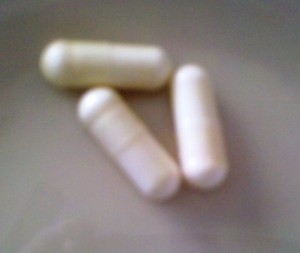Prebiotics Reduce Colds and Flu
Scientists have found that prebiotics boost our immunity significantly, resulting in fewer colds and flu each year.
In this article
Prebiotics studied in university students
Most of us recognize that cold and flu viruses run rampant around a university campus. Kids are constantly getting sick during the school year, especially during the winter months. And they tend to spread these viruses quite easily.
Researchers from the University of Florida have found that supplementation with galactooligosaccharides, a type of prebiotic, resulted in fewer days of colds and flu, and less intestinal upset in general.
The study enlisted 427 healthy university students, and they were given either placebo, 2.5 grams or 5 grams of galactooligosaccharide prebiotic supplements each day for eight weeks. The timing coincided with a period of higher stress – around final exams – when more students traditionally come down with colds and flu.
The number of days of colds and flus, complaints of diarrhea, acid reflux, indigestion and stress levels were tracked among the subjects through the period.
How much prebiotics worked?
Those who took 2.5 grams of prebiotics had significantly fewer colds and flus, as well as lower levels of gastrointestinal issues and stress.
However, normal-weight students that took five grams of prebiotic supplements showed the most improvement. This group had 40% fewer days of colds and influenza. They also had significantly fewer cases of intestinal upsets and considerably less stress.
The overweight subjects, however, did not have this level of response in the five gram group – although overweight students still responded positively in the 2.5 gram per day group. And the effects were not as great in those with higher levels of stress, although the prebiotics did lower stress levels in general.
The relationship between prebiotics and lower colds and flu duration ties into research that has showed that probiotics increase immunity, infection levels, and colds and influenza (see book link below for details). Gastrointestinal issue reductions have also been shown with probiotic use.
The relationship between stress and prebiotics ties perfectly into other research – and a recent study reported elsewhere on the Real Natural ezine – showing that probiotics reduce stress.
Other research finds that echinacea also fights colds and flu.
What are prebiotics?
They are the food for probiotics. Probiotics are bacteria and they feed off of, and ferment from prebiotics.
In other words, our gut’s probiotics are nourished by certain types of foods – typically long-chain polysaccharides such as fructooligosaccharides (FOS) and galactooligosaccharides (GOS). While supplementation can increase probiotic nourishment, these are also contained in certain foods.
Learn more about prebiotics and probiotics with this webinar:
References
Hughes C, Davoodi-Semiromi Y, Colee JC, Culpepper T, Dahl WJ, Mai V, Christman MC, Langkamp-Henken B. Galactooligosaccharide supplementation reduces stress-induced gastrointestinal dysfunction and days of cold or flu: a randomized, double-blind, controlled trial in healthy university students. Am J Clin Nutr. 2011 Jun;93(6):1305-11.
Probiotics – Protection Against Infection: Using Nature’s Tiny Warriors To Stem Infection and Fight Disease. Logical Books, 2016.
















